Navigating the Challenges of Coding Bootcamps: A Guide
Written on
Chapter 1: Embracing the Journey
If you're finding it tough to cope with your coding bootcamp, know that you're not alone. Learning to code can feel overwhelming, especially in the early stages.

Recently, I received a message on Twitter from an unfamiliar account. Initially, I was reluctant to engage, uncertain of what to expect. However, I'm thankful I did. The sender was a student in the Flatiron School’s Software Engineering program — the same program I attended in 2017 that transformed my life. They were struggling to grasp the concepts being taught.
Below is a snapshot of their message.
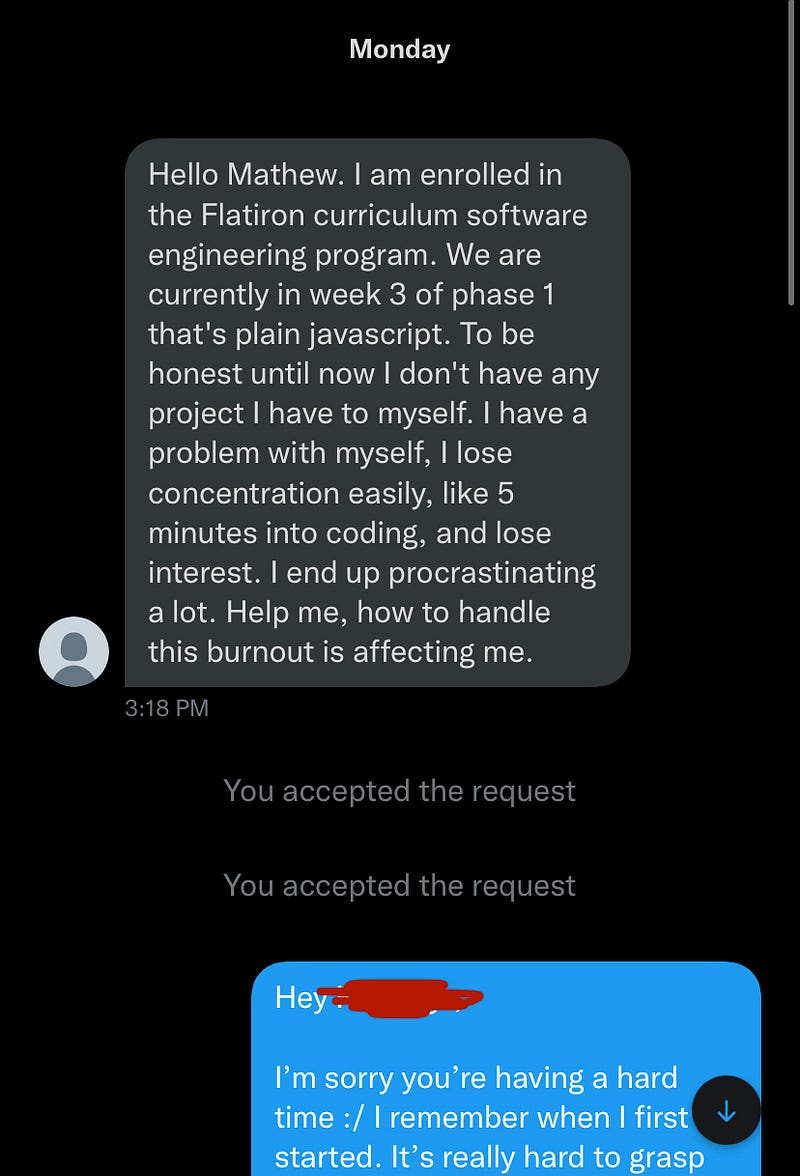
My Personal Experience
This message struck a chord with me because I also faced similar feelings of anxiety. I vividly remember the self-doubt and pressure I encountered during my first experience with Module 1. I initially failed and questioned if this path was right for me.
After my setback, I even considered asking for a refund and looked into returning to TV production — the very industry that had inspired me to switch careers. It took considerable encouragement from my family, particularly my cousin Rico DeSantis, who was also on his bootcamp journey, to keep me motivated. I am eternally grateful for their support.
To share my insights, I decided to pen this down as a blog post, hoping to reach anyone searching for guidance on overcoming bootcamp challenges. Here’s what I composed (with some grammatical adjustments for clarity):
Hey [omitted],
I empathize with your struggles. I remember the difficulties I faced at the start; it was tough, and I had to revisit Module 1 multiple times. However, that effort paid off!
About a week or two into the first module, everything began to click, and I found it exhilarating! If you’re having trouble focusing, it could be due to the pace at which you’re trying to absorb the material.
That’s completely normal.
Learning is challenging, and significant growth often comes with discomfort. What you’re undertaking is not simple. Be kind to yourself and respect the learning process — it’s tough! It may feel slow, but you will get there.
Take your time with the lessons — don’t rush through them or worry about completing them quickly. Focus on understanding. For instance, consider the purpose of a for loop or an object. How do you access and modify their properties?
By taking a step back, you can prevent information overload.
Think of it like having a bucket of rice to finish. It may seem daunting, but if you approach it as “I’ll just have one bowl,” you can appreciate that serving without being overwhelmed by the rest.
Instead of attempting to consume the entire bucket at once, enjoy a few bowls each day over the week. The task becomes much less intimidating.
Although the program is fast-paced, prioritize understanding each concept before moving on. Don’t hesitate to ask for help. Remember, you’re not in this alone.
Regarding projects — don’t worry if you haven’t started any yet! By the end of Module 1, you’ll have a collaborative project. For now, focus on understanding the fundamentals: What does a variable do? What is its purpose? How do you access or modify an object? What is the function of a loop?
You’ve got this.
It’s tough, but that’s part of the learning process. If you’re feeling particularly burnt out, inform your instructor or take a day off from coding. It may seem counterproductive, but you’ll return refreshed and with a clearer mind.
A bit of rest can be incredibly beneficial.
Below are screenshots of my original response.
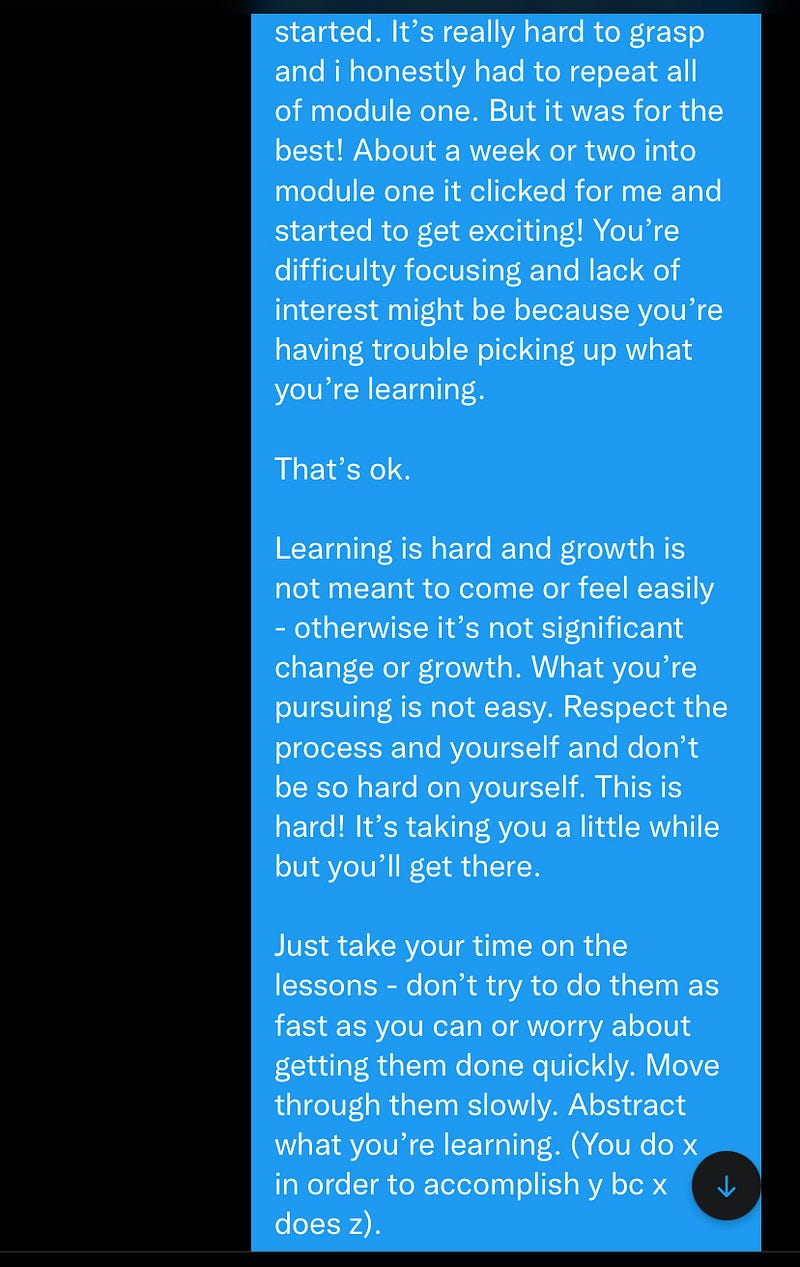
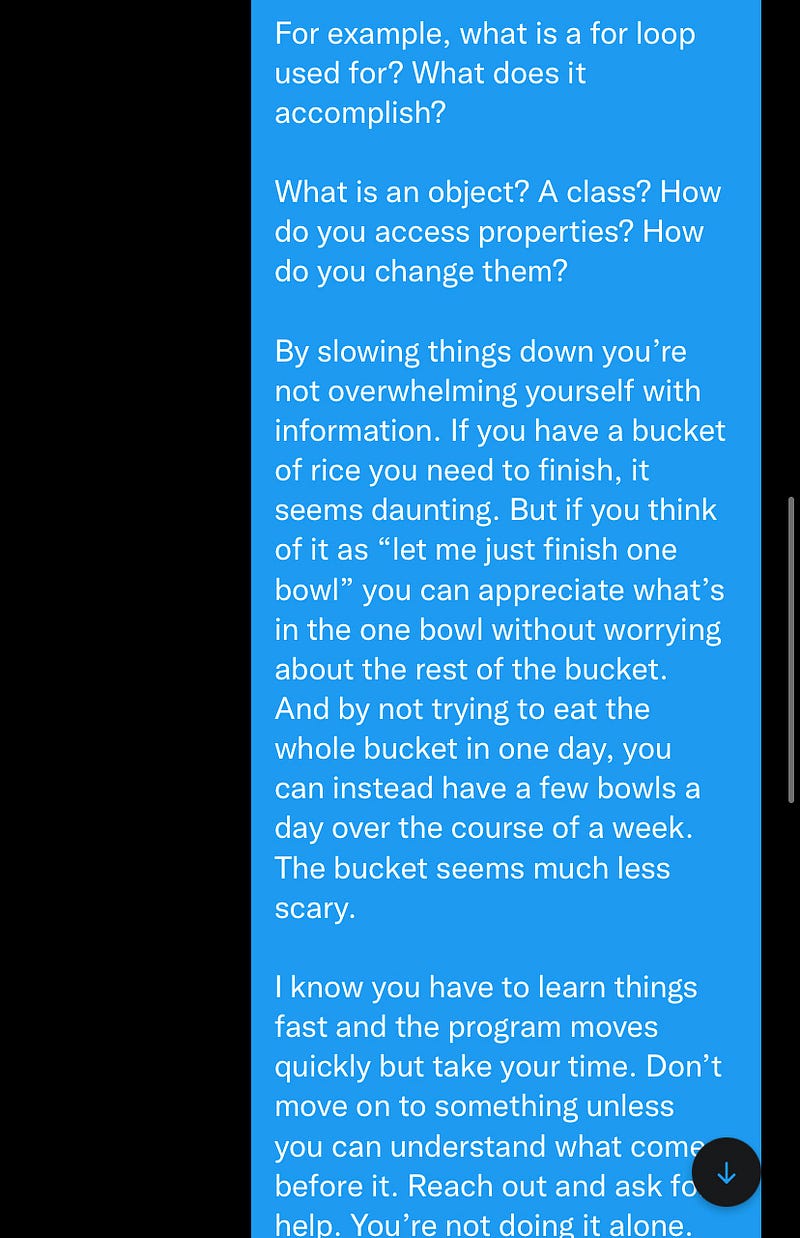
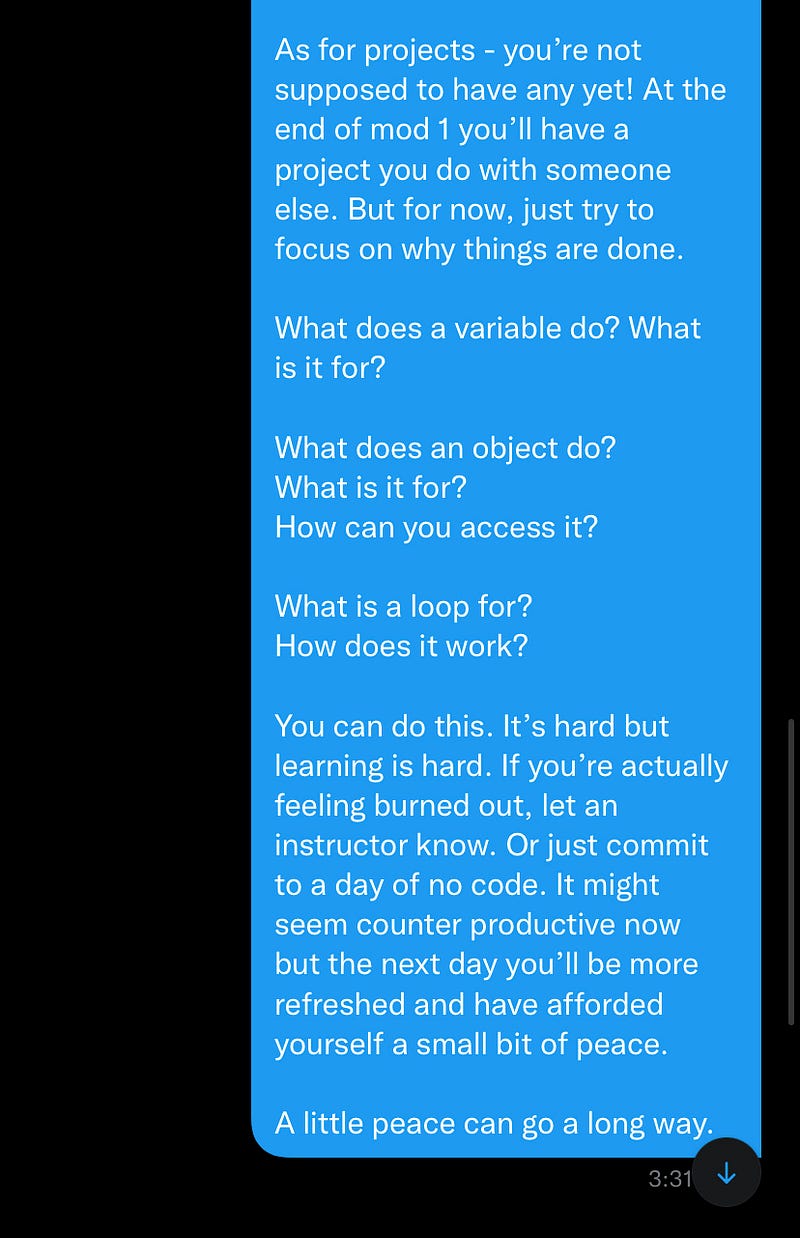
I saved this message as a blog post so others could find it and benefit from its message.
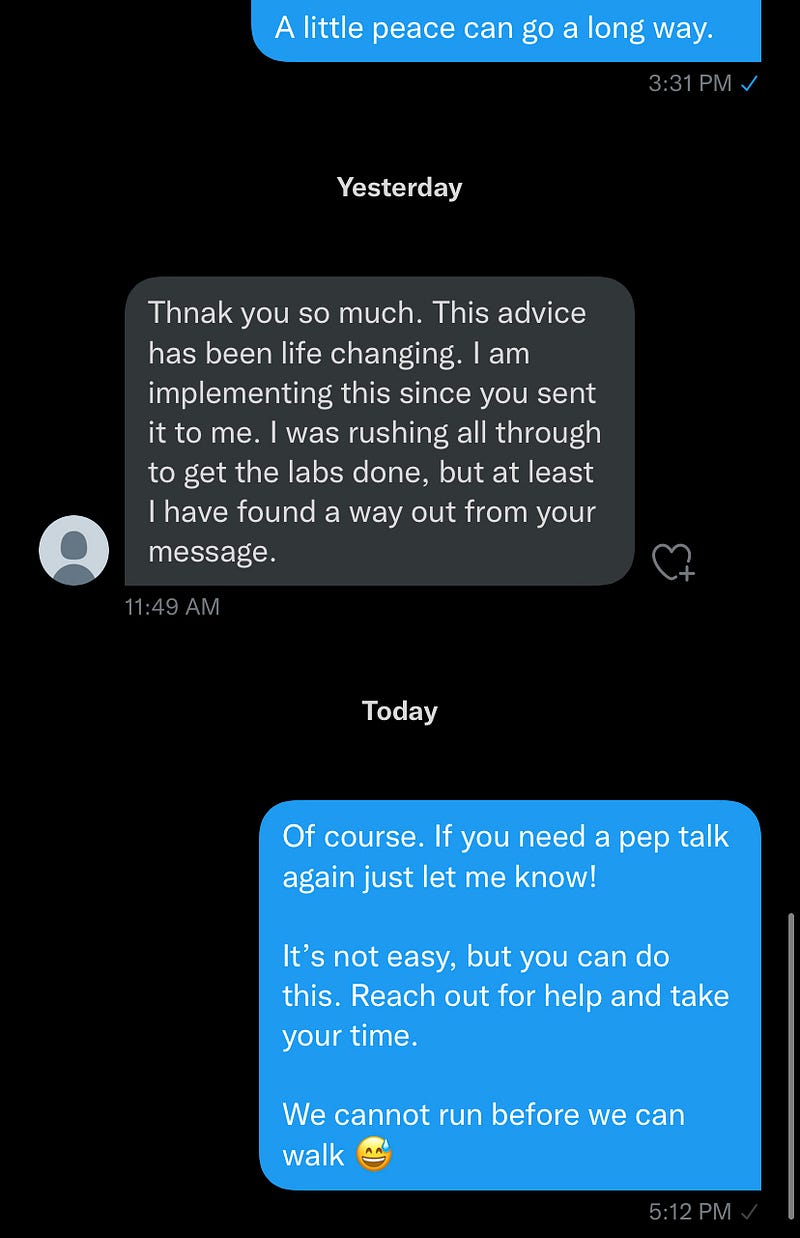
Conclusion
Navigating this journey will not be easy. Don’t expect to tackle it the same way you might have approached high school or college with rote learning or last-minute cramming. Success will come if you allow yourself the time to understand.
Conceptualize what you’re learning; the beginning of the program is crucial as it sets the foundation for your future success. Patience, rather than rushing through lessons, will ultimately determine how well you do.

During my first attempt, I moved too quickly and had to repeat the lessons. On my second pass, I absorbed the material more thoroughly. Eventually, when someone in my new cohort asked me about preparing for a coding challenge, I was surprised to find that I could explain concepts that once terrified me.
If you’re struggling in your bootcamp, whether at Flatiron or elsewhere, I hope you find value in this advice. You can and will succeed.
Once you complete the program (and you will!), check out the post I wrote offering guidance for bootcamp graduates. It has served me well, and I hope it helps you too!
You can also subscribe to my email list to stay updated on my latest posts!
Chapter 2: Facing Future Challenges
In this video titled "Things Are Looking TERRIBLE For Coding Bootcamps in 2024," the speaker discusses the current challenges and changes in the coding bootcamp landscape.
The video "What To Do If You Can't Find A Job After A Coding Bootcamp" offers practical advice for graduates struggling to secure employment.